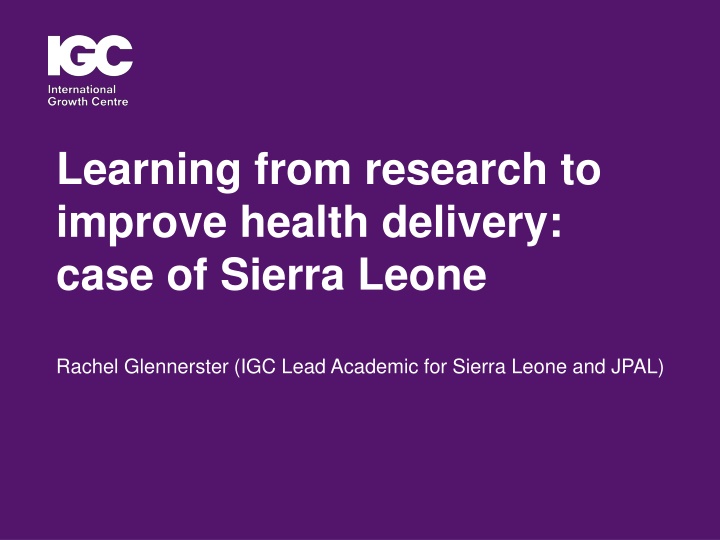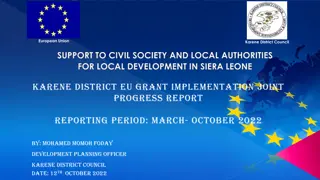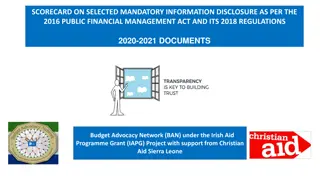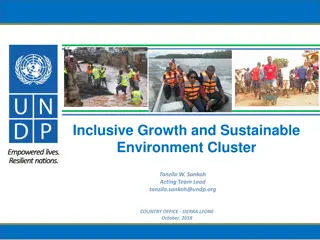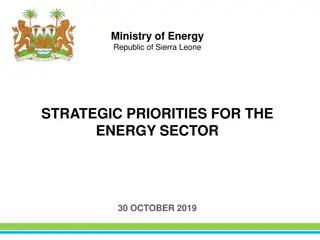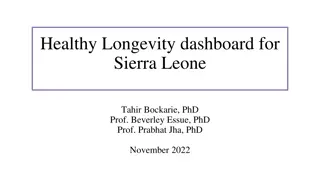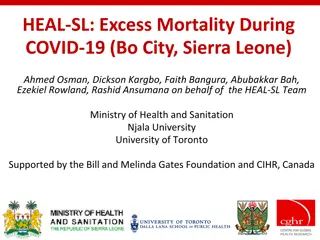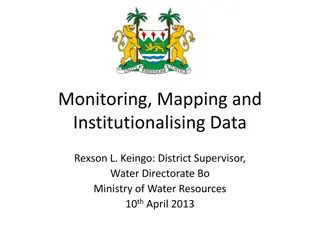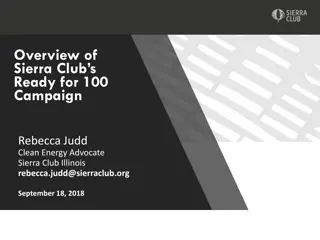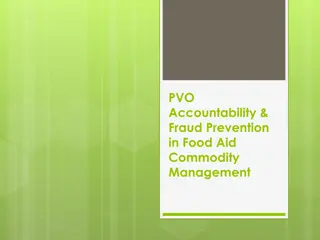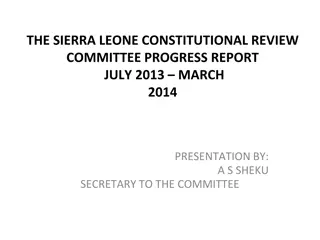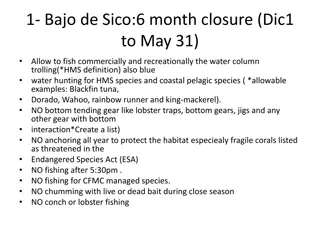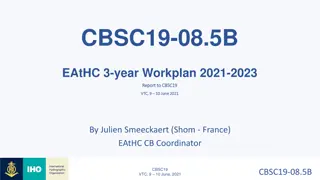Learning from Research to Improve Health Delivery in Sierra Leone
Challenges in health delivery in Africa include low uptake of cost-effective prevention, leading to underinvestment in healthcare. Research suggests making prevention convenient and cost-effective can improve uptake. Lessons learned from post-war recovery highlight the importance of incentivizing patient visits to clinics over building more facilities or increasing staff. Recruiting the right personnel is crucial, and community report cards can help monitor dispersed health workers effectively.
Download Presentation

Please find below an Image/Link to download the presentation.
The content on the website is provided AS IS for your information and personal use only. It may not be sold, licensed, or shared on other websites without obtaining consent from the author.If you encounter any issues during the download, it is possible that the publisher has removed the file from their server.
You are allowed to download the files provided on this website for personal or commercial use, subject to the condition that they are used lawfully. All files are the property of their respective owners.
The content on the website is provided AS IS for your information and personal use only. It may not be sold, licensed, or shared on other websites without obtaining consent from the author.
E N D
Presentation Transcript
Learning from research to improve health delivery: case of Sierra Leone Rachel Glennerster (IGC Lead Academic for Sierra Leone and JPAL)
Health delivery challenge in Africa Simple highly cost-effective prevention with low takeup Poor will spend on acute care, not prevention Underinvestment in health world wide phenomena Research suggests often procrastination not hostility Making prevention cheap (free) and convenient, substantially increases take up and is cost-effective Kremer and Glennerster (2011) But, with highly disbursed populations how do you provide convenient quality health care? How do you monitor disbursed staff?
Access to clinics over time, Sierra Leone Source: National Public Services Survey 2011, DecSec
Lessons from research suggest way forward Its cheaper to incentivize patients to come to clinics than to build more clinics or send health staff hamlet to hamlet (Banerjee, Duflo, Glennerster, and Kothari, 2010) Many of the programs designed to improve provider accountability have proved unsuccessful, absenteeism increases with qualifications (Kremer and Glennerster, 2010) More, but less qualified, staff to give simple prevention technologies Intuitive but not yet rig evidence to support this Recruiting the right people more important than monitoring (Ashraf, Bandiera, and Scott) Community report cards can help monitor disbursed health workers and improve health (Bonargent, Dube, Haushofer, Siddiqi, 2015)
Improving provider accountability is hard Cost per additional day of provider attendance 7
Taking lessons from one context to another Is one rigorous evaluation of immunization incentives enough evidence for Sierra Leone government to act? Tested in India with an NGO Want to scale it up in Sierra Leone with government Higher completed vaccination rate Incentives for immunization Much more evidence this type of approach is likely to work Lots of practical issues to work through context specific
What is needed for incentives to work? Can access clinic Provider presence sufficient Parents want to vaccinate Do basic conditions hold locally? Parents pro- crastinate Incentives delivered to clinic Incentives given to parents Local logistics critical Evidence on behavioral Small incentives offset bias Health improves Immuniza- tion rises Impact
How do we incorporate these lessons? Basic conditions appropriate for incentives for immunization Need to attract patients back to clinics post Ebola PreEbola high rates for early vaccines but drop off Special campaigns to boost rates are expensive What incentive to use? What supply chain to use for delivery? How to avoid incentive being siphoned off and sold? Community Health Workers offer promise of delivering prevention cheaply and conveniently but many questions Can SL attract the high quality CHWs Zambia did? How to reward them incorporate into performance based pay? Can Community Monitoring be incorporated in a cheap and efficient way? 14
International Growth Centre London School of Economics and Political Science Houghton Street London WC2 2AE www.theigc.org
